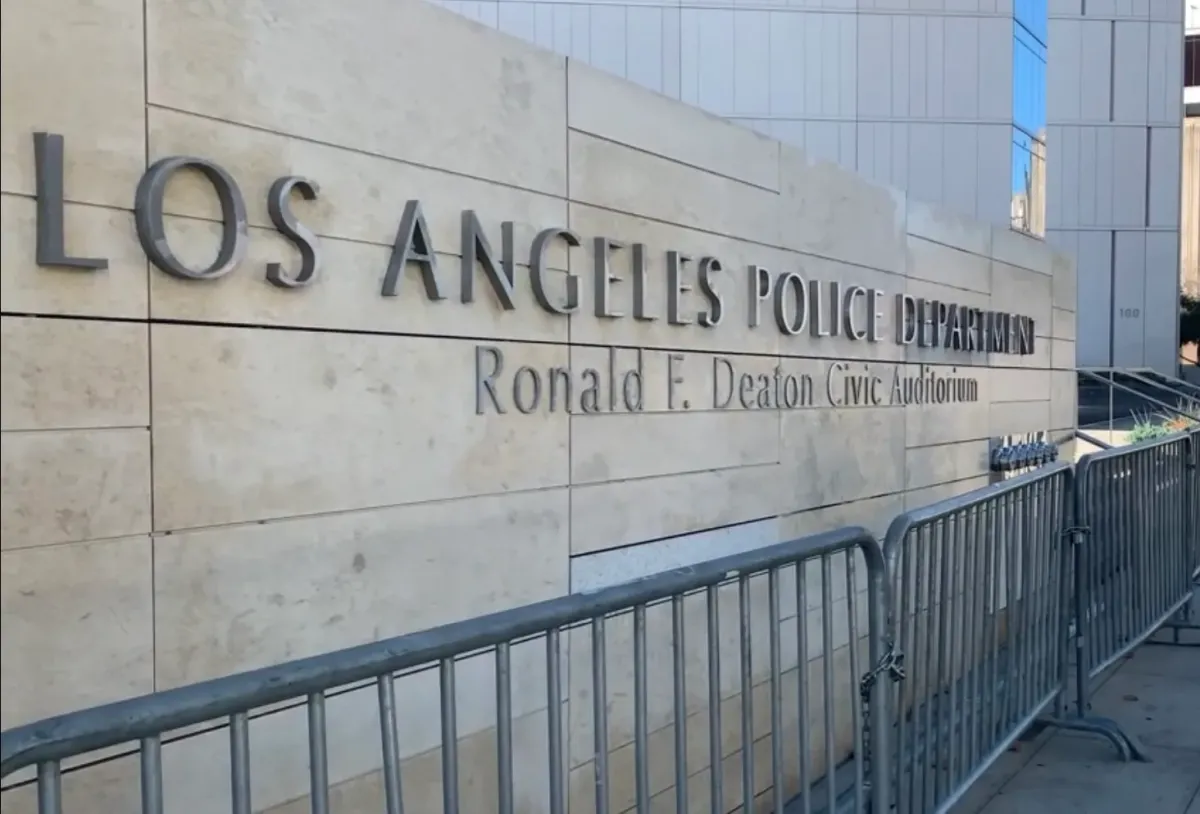
All-civilian review panels have the power to reduce the severity of the punishments recommended by the chief of police and have increasingly done so over the past three years.
On November 22, LAPD’s Office of the Inspector General (OIG) presented findings regarding the results of LAPD’s Board of Rights review process. The Board of Rights (BOR) is the final appeal for an LAPD officer facing discipline, and consists of three hearing examiners. In its report, the OIG found that the BOR’s all-civilian panels, in particular, posed a significant barrier to officers receiving punishment.

All-civilian panels have only been around since 2019, and their creation was heavily supported by LAPD’s officer union, LAPPL. An officer facing discipline is allowed to select either a traditional Board of Review (two high-ranking officers and one civilian) or an all-civilian hearing. Regardless of its composition, the three-person panel has the ability to remove any discipline measure recommended by the Police Commission or Chief Michel Moore.
While discipline officially falls under the authority of the chief of police, that authority is constrained by the Board of Rights. The BOR is the last authority on whether an officer will face suspension or termination. Its hearings are usually completely closed, shielding the public from knowledge of the findings.
BOR hearings are considered “de novo” hearings, meaning that they come up with their own findings and have their own presentation of evidence and statements. However, they cannot prescribe a more severe punishment than the one recommended by the chief of police.
At these hearings, the “department advocates,” who resemble prosecutors, lack any formal legal training, while officers often retain attorneys experienced in the BOR process. “It is a quasi-judicial process,” Police Chief Moore said of the hearings, while admitting that the difference in training and expertise between department advocates and defense attorneys causes an imbalance.
LA Police Commission BOR Statistical OverviewDownload
According to the ACLU, civilian examiners receive $900 for a full-day hearing, $450 for a half-day hearing, and $900 per final report for an Administrative Appeal hearing. Applicants are barred from the position if they have a criminal record. Originally, civilian panel members were required to have seven years of experience with arbitration, mediation, and administrative hearings. This was later changed to two years of experience in human resources, personnel relations, labor relations, or other personnel matters.
Those that apply to be hearing examiners apply to the police commission and are then interviewed by two commissioners. Several applicants are then suggested to all members of the police commission, who make the final appointments.
The OIG report shows that the all-civilian panels weigh heavily in support of the officers facing discipline. When officers faced termination, BOR civilian panels ended with lighter recommendations more than two-thirds of the time.
Officers facing discipline were at first skeptical of all-civilian panels but in 2022, every officer facing a Board of Rights hearing opted for the all-civilian panel. As the share of all-civilian panels has grown, the share of recommendations for lighter sentences has grown, from 55% in 2019 to 76% in 2021.
Even before their inception, groups like the ACLU, BLM-LA, and LA CANwere skeptical about all-civilian panels. In 2017, the Los Angeles Timescalled the proposal to create civilian panels “noxious” and criticized the measure’s placement on a nearly empty ballot. The Los Angeles Times questioned why the civilian panels were needed, and pointed out that the Los Angeles City Council had approved the panels before approving a study looking into the traditional hearings’ effectiveness.
During the OIG presentation, Commissioner Eileen Decker expressed surprise that the hearing examiners are considered employees of the Police Commission once selected. Groups like the ACLU have called into question the impartiality of the hearing examiners, given the opaque selection process and the fact that potential examiners with criminal records are barred.
The commissioner further pointed out that she felt as though there was a lack of oversight over these hearing examiners and that they were not given the proper information to effectively do their work.
The names and identities of the civilians serving on the panels are not released to the public. According to Mark Furniss of LAPD’s Office of the Inspector General, “We’ve had a lot of pushback from the various civilians, some of [whom] have law degrees and are attorneys. But a lot of times we have real estate agents and architects and whatnot on these boards.” Furniss told LAPD Commissioners while presenting the report that some panel members bring their personal opinions into the BOR process.
Furniss expressed concern that some of the civilian hearing examiners were invalidating rules within LAPD policy, especially rules governing officer conduct. Furniss said during the presentation that they’d “had a couple board members recently where they basically told us they don’t believe in the term ‘unbecoming conduct.’”
Explaining that many were unfamiliar with or skeptical of more broad rules and regulations, Furniss told the commission, “They told the department if we can’t show them the policy or procedure that is violated, they won’t find [the officer] guilty.”
In what Inspector General Mark Smith called an “isolated incident,” one civilian panel even “extensively praised” an officer that was facing discipline. This is particularly problematic because the BOR only has the authority to remove discipline and not commend officers. According to Smith, this incident “raised concern about avoiding any actual and/or perceived [partiality] to one side.”
According to the city ordinance that created the civilian panels, City Council is required to review their effectiveness after two years. The commission moved Smith’s report and several recommendations to the City Council for review.
Commissioner Decker, who worked on some of the findings, called the full report “deeply disturbing.” Referring to the high percentage of discipline measures that are overturned, she said of the civilian panels, “There’s no other place where the odds of getting a lower court’s ruling reversed are as high as this process.”
While nearly everyone involved or quoted in the report agreed that the civilian panels are heavily weighted toward the officers, no City Council member has yet agreed to act on any of the recommendations.
